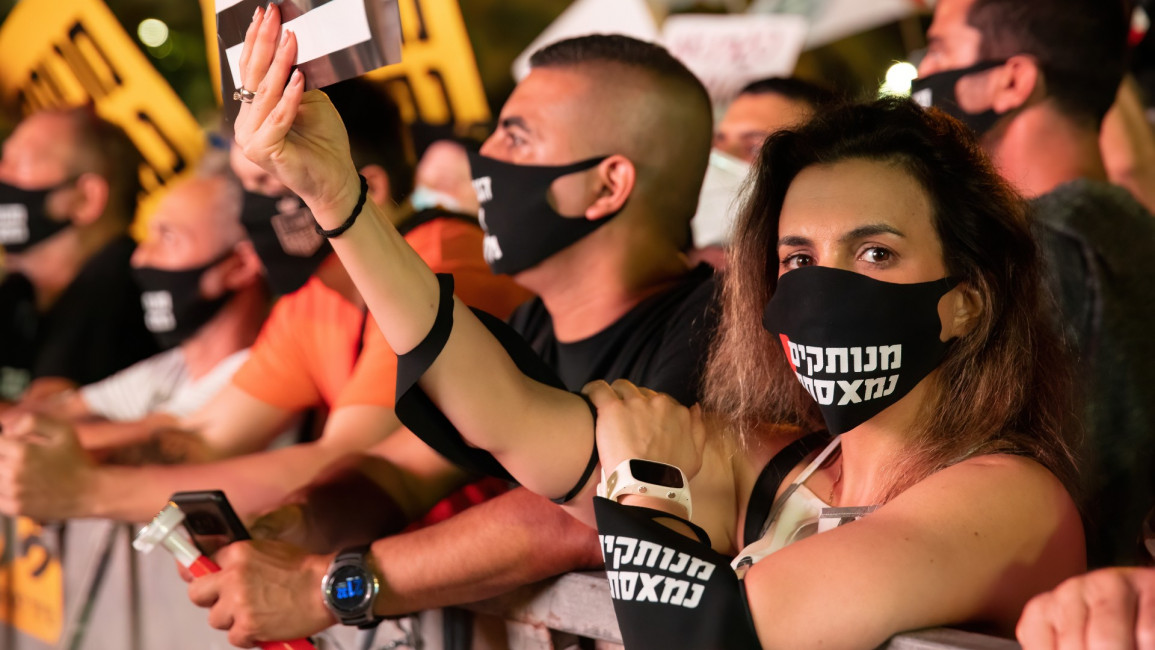Israel deputy health minister slams Tel Aviv protest as 'health terror attack'
The mass protest was organised by self-employed workers, small businesses, and performing artists frustrated over coronavirus restrictions taking away their livelihoods, as well as government assistance they view as insufficient.
Over 300 police officers were deployed to Rabin Square, the historic Tel Aviv protest site where Saturday's demonstration took place. At least 20 people were arrested, according to Israeli media.
Deputy Health Minister Yoav Kisch, who belongs to Prime Minister Benjamin Netanyahu's Likud Party, said that while he recognises "the extent of the economic crisis", he was dismayed to see the rally take place as Israel experiences a rise in Covid-19 cases.
"In the end, we do everything to prevent crowds and pay hard prices (social and economic) to stop the virus and then we see pictures from the square yesterday - a mega health terror attack," he tweeted.
On the other hand, Defence Minister Benny Gantz - who is set to eventually take over Netanyahu's prime minister role - expressed support for the protesters.
"The citizens that went out to the streets tonight express real and just distress and have the full right to do so - and we, as the government, have the responsibility to listen and act to find solutions," Gantz stated in a Facebook post.
On Sunday, Prime Minister Netanyahu pledged immediate financial aid to Israelis whose livelihoods have been devastated by the coronavirus.
Israel had won early praise for its virus containment efforts, but cases have surged since a broad re-opening began in May.
Prime Minister Netanyahu admitted in a late Thursday press conference that the decision to allow businesses, including bars and event spaces, to re-open may have been made "too soon".
Last week, Israel's director of public health services resigned, blasting her superiors for ignoring her advice and steering Israel's virus response off course.
Various restrictions have been re-imposed since the surge in cases, including the closure of venues, clubs, bars, gyms and public pools.
Limits on the number of people allowed in restaurants and places of worship have also been reinstated.
Certain towns and city neighbourhoods across the country considered virus hotspots have been placed under more robust lockdowns.
On Friday, Israel recorded its highest number of coronavirus infections over a 24-hour period, with nearly 1,500 new cases confirmed.
Follow us on Facebook, Twitter and Instagram to stay connected



